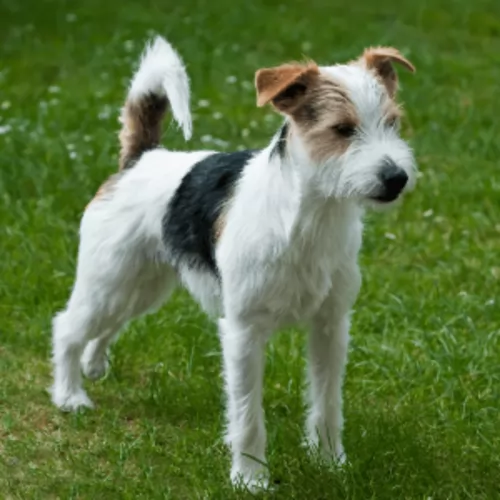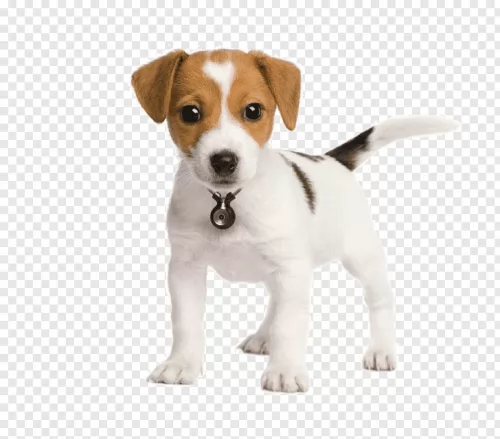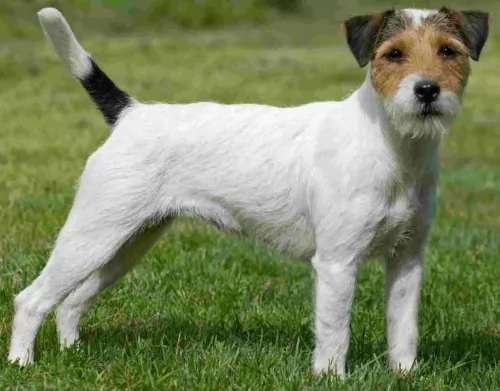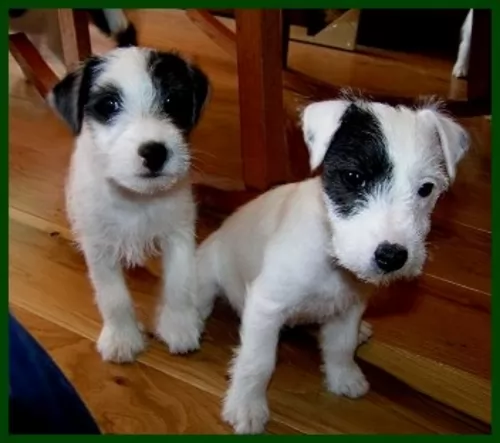 Petzlover
Petzlover Braque Francais (Pyrenean Type) is originated from France but Parson Russell Terrier is originated from United Kingdom. Braque Francais (Pyrenean Type) may grow 22 cm / 9 inches higher than Parson Russell Terrier. Braque Francais (Pyrenean Type) may weigh 47 kg / 104 pounds more than Parson Russell Terrier. Both Braque Francais (Pyrenean Type) and Parson Russell Terrier has same life span. Both Braque Francais (Pyrenean Type) and Parson Russell Terrier has almost same litter size. Braque Francais (Pyrenean Type) requires Low Maintenance. But Parson Russell Terrier requires Moderate Maintenance
Braque Francais (Pyrenean Type) is originated from France but Parson Russell Terrier is originated from United Kingdom. Braque Francais (Pyrenean Type) may grow 22 cm / 9 inches higher than Parson Russell Terrier. Braque Francais (Pyrenean Type) may weigh 47 kg / 104 pounds more than Parson Russell Terrier. Both Braque Francais (Pyrenean Type) and Parson Russell Terrier has same life span. Both Braque Francais (Pyrenean Type) and Parson Russell Terrier has almost same litter size. Braque Francais (Pyrenean Type) requires Low Maintenance. But Parson Russell Terrier requires Moderate Maintenance
 The Braque Francais Gascognes and the Braque Francais Pyrenees are two alike dogs that are in reality separate breeds. The Pyrenees is not as rare as his larger brother, Gascognes. Around since the 15th century at least, not mush is really known about their origins. Because the Braque Francais was exported or taken to so many different countries in the 15th-18th centuries, a lot of information regarding the origins of the breeds were lost. There was a major study done in the 19th century that showed the two dogs came from very different blood lines. It is known that in this timeframe there was an acute need for a dog that was better than the current hunting breeds. This dog needed to be able to point, track, retrieve and flush.
The Braque Francais Gascognes and the Braque Francais Pyrenees are two alike dogs that are in reality separate breeds. The Pyrenees is not as rare as his larger brother, Gascognes. Around since the 15th century at least, not mush is really known about their origins. Because the Braque Francais was exported or taken to so many different countries in the 15th-18th centuries, a lot of information regarding the origins of the breeds were lost. There was a major study done in the 19th century that showed the two dogs came from very different blood lines. It is known that in this timeframe there was an acute need for a dog that was better than the current hunting breeds. This dog needed to be able to point, track, retrieve and flush.
With no authenticated story of origin, many myths have grown up in the vacuum. The most common belief is that the Chien d’Oysel, an ancient spaniel breed that was medium sized with brown or white fur and brown markings, is an ancestor of the Braque Francais and local hunting dogs. To make the Gascognes larger and stronger than the Pyrenees, local scent hounds were also crossed with these dogs. The Pyrenees does not have these scent hounds in their background.
Until the late 1800’s, there was only one type and one breed of Braque Francais. But when the breed was no longer the dogs of a nobility, the average hunter needed a smaller dog. Urbanization following the French Revolution added to this trend and the Pyrenees Mountain hunters crossed the Gascognes with smaller scent hounds and pointers. Thus, they created the Braque Francais Pyrenees and each dog became its own breed in 1920.
The Braque Francais breed club, including standards for both breeds was established in 1850 with the standards established in 1880. This acceptance was then followed by registration of both breeds in the International Kennel Club (FCI) and the French Kennel Club. Canada recognizes only the Gascoigne and the United Kennel Club (UKC) of the United States, recognized both. Neither breed has been recognized by the American Kennel Club (AKC).
The Second World War was brutal to both types of the Braque Francais, but the Pyrenees have surpassed their sister breed and are the only one that has found its way to North America. The importers have started a breeding program in Canada. Later a few were imported to the States. There are currently at least four breeders in North America – 2 in the U.S. and 2 in Canada. It is thought that there are less than 200 Braque Francais Pyrenees living in North America.
 The Parson Russell Terrier hails from England and is a small to medium sized dog dating back to the 18th century. It is believed that Reverend John ‘Jack’ Russell was the developer of this dog. The Parson has always been involved with England’s sport of foxhunting.
The Parson Russell Terrier hails from England and is a small to medium sized dog dating back to the 18th century. It is believed that Reverend John ‘Jack’ Russell was the developer of this dog. The Parson has always been involved with England’s sport of foxhunting.
They’re spritely and quick and have been able to keep up on a hunt and take on a fox in its lair. The dog was first recognized in 1990 in the United Kingdom as the Parson Jack Russell Terrier and in America in 1997.
All the top kennel clubs recognize this dog as the Parson Jack Russell Terrier.
 The Braque Francais breeds are medium sized dogs with the Pyrenean standing 10 centimeters shorter than the Gascogne. They have a, white or chestnut brown coat with brown spots and a brown head. The Pyrenees has a head that is broader and ears that are not as long as the Gascogne. Their muzzle is narrower. He is strong, tall with hanging lips and square muzzles.
The Braque Francais breeds are medium sized dogs with the Pyrenean standing 10 centimeters shorter than the Gascogne. They have a, white or chestnut brown coat with brown spots and a brown head. The Pyrenees has a head that is broader and ears that are not as long as the Gascogne. Their muzzle is narrower. He is strong, tall with hanging lips and square muzzles.
 The Parson Jack Russell is essentially a white dog with black and tan or orange-fawn patches. He can be tri-colored too. The coat is either smooth, rough or broken.
The Parson Jack Russell is essentially a white dog with black and tan or orange-fawn patches. He can be tri-colored too. The coat is either smooth, rough or broken.
He stands at between 33–36cm tall at the withers and weighs between 5 and 8kg. Unlike the Jack Russell, the Parson Russell Terrier has longer legs. He has some longer hair on the head, legs and body. The ears are floppy wit the tip pointed forward. The tail has always been docked but when left long it it held high, slightly curving over the back.
Feisty, brave, cheeky and alert, the Parson Russell Terrier is an energetic dog who gets on well with children as he knows that this is essentially where his games come from.
He is bold and clever and you’ll be able to have him trained and socialized without any trouble. These little dogs are full of life and they are protective of their humans and their property, making excellent watchdogs.
 This is a sociable, lovable, friendly breed. They are gentle and docile dogs that want only to please you. They like children as well as adults and will never be a guard dog as they are friendly to strangers as well. The Braque Francais Pyrenees is affectionate while being highly skilled hunters. They are prone to severe separation anxiety if left alone for long. They might even have a tendency toward shyness.
This is a sociable, lovable, friendly breed. They are gentle and docile dogs that want only to please you. They like children as well as adults and will never be a guard dog as they are friendly to strangers as well. The Braque Francais Pyrenees is affectionate while being highly skilled hunters. They are prone to severe separation anxiety if left alone for long. They might even have a tendency toward shyness.
 In general the Parson is a friendly,loving dog, fairly small but packed full of feisty personality.
In general the Parson is a friendly,loving dog, fairly small but packed full of feisty personality.
They make excellent pets for the entire family. He is an intelligent dog, but typical of most terriers he can be stubborn, but this can easily be fixed with training and socialization. With good care, he’ll make you a wonderful little pet and companion.
 The breed of Braque Francais in both its incarnations is generally a pretty healthy dog. They are prone to several issues including dysplasia of the elbow and hip, aortic stenosis, some eye issues and patellar luxation. The eye issues are around the lids and include ectropion and entropion along with cataracts and progressive retinal atrophy (PRA). These issues are not avoidable, but the risk can be reduced even more by breeder testing of parents of any litter and then test the litter. Both the OFA and CERF should conduct tests for the dysplasia (Orthopedic Foundation for Animals) and eyes (Canine Eye Registration Foundation).
The breed of Braque Francais in both its incarnations is generally a pretty healthy dog. They are prone to several issues including dysplasia of the elbow and hip, aortic stenosis, some eye issues and patellar luxation. The eye issues are around the lids and include ectropion and entropion along with cataracts and progressive retinal atrophy (PRA). These issues are not avoidable, but the risk can be reduced even more by breeder testing of parents of any litter and then test the litter. Both the OFA and CERF should conduct tests for the dysplasia (Orthopedic Foundation for Animals) and eyes (Canine Eye Registration Foundation).
 Your Parson Jack Russell can live to be between 12 and 15 years but nonetheless he does have some breed-related health issues to watch for.
Your Parson Jack Russell can live to be between 12 and 15 years but nonetheless he does have some breed-related health issues to watch for.
Eye conditions which can affect this dog include primary lens luxation,cataracts, corneal dystrophy and progressive retinal atrophy. With cataracts the lens of the eye develops a cloudy look resulting in poorer vision and sometimes blindness. Cataract surgery is available for dogs.
Your Parson Jack Russel should be lean and muscular and always full of energy. Avoid feeding him unhealthy treats which can lead to obesity and other health problems.
All kinds of parasites such as ticks, fleas and worms can invade your dog’s body. Roundworms, hookworms and tapeworms can cause havoc with their health and some of these parasites can even be transmitted to humans. It’s why it is important to get your puppy to the vet to be de-wormed and to get his first injections.
A liver disorder known as portosystemic shunt can mean that some of the blood supply doesn’t get to the liver and it doesn’t function properly. This will mean the liver can’t remove toxins from the bloodstream effectively.
 This breed need a high energy food including raw meat such as chicken, fish, and beef. If feeding kibble, they need about 2.5 cups per day.
This breed need a high energy food including raw meat such as chicken, fish, and beef. If feeding kibble, they need about 2.5 cups per day.
Prone to inflammation and infections of the ears as they are long and floppy. Clean them regularly. As previously mention eye disorders, joint dysplasia and bloat.
The Braque Francais Pyrenees is a fairly versatile hunting dog. They can hunt on all types of terrain by trailing, flushing and retrieving. They are quick and move quickly without actually sprinting. This dog needs serious exercise every day. They will walk or jog with you. They will run along side your bike. Whatever you choose to do, do it for an hour a day. Don’t make couch potatoes out of this breed. It will not turn out well if you do. They need a place where they can play off leash as well, such as a large yard or a dog park.
 The Parson Russell Terrier has different coat types – the smooth and rough and both will require regular brushing. Rough coats will require plucking or clipping to avoid matting.
The Parson Russell Terrier has different coat types – the smooth and rough and both will require regular brushing. Rough coats will require plucking or clipping to avoid matting.
Check his eyes and ears regularly. Look inside his ears for excess wax and dirt which could lead to an ear infection. His nails should also be trimmed.
The best thing you can do for your Parson Russell Terrier if you don’t want your pet producing puppies is to have it spayed or neutered. Spaying for females or neutering for males decreases the likelihood of certain types of cancers too so it can be beneficial.
Diet is hugely important for a Parson Russell Terrier and the food you decide for him can impact his health. Many time those ‘treats’ you feed your pet do nothing more but give him a stomach ache.
It's tempting to pop chocolates, popcorn, nuts and ice cream into your pets mouth when he is so adorable but in the long run it is shortening his life. All he basically requires and needs is a simple, consistent diet of the top commercially manufactured foods mixed with some tasty home made food from time to time.
Boiled chicken, brown rice and vegetables such as sweet potatoes, carrots and spinach will do your pet wonders. Ensure he always has fresh, cool water available to him.